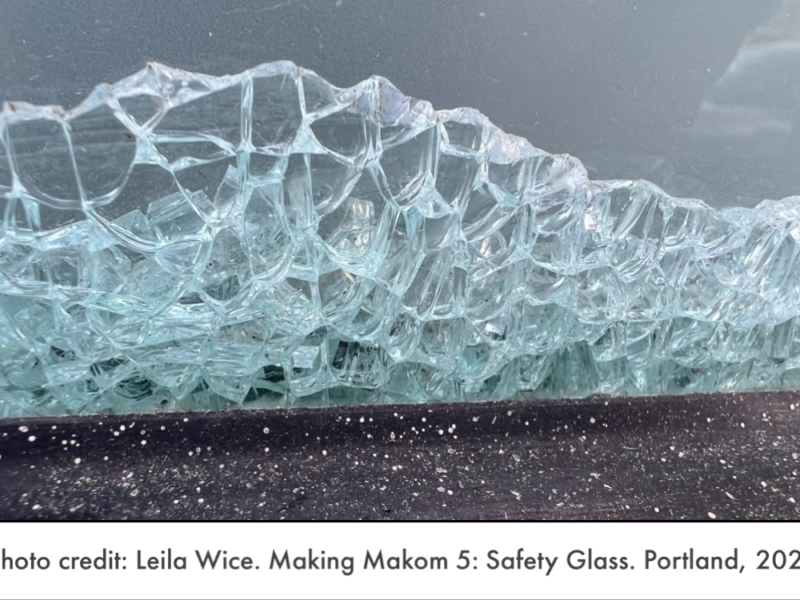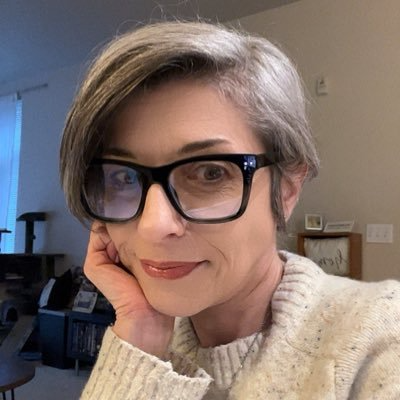The death of four commercial fishermen on Dec. 11, 2001, when their 40-foot aluminum fishing vessel Nesika capsized a half-mile west of Yaquina Head, marked a turning point for each of the men’s families. It was the first day that the Dungeness crab fleet put to sea that year – a cold, dirty day on the ocean, typical for the start of the crab season in Oregon. The four men were Rob Thompson, 40, the boat’s captain, and crewmen Stephen Langlot, 34, Jared Hamrick, 20, and Benjamin Eder, 21. Eder was the elder son of the vessel’s owners, Bob and Michele Longo Eder of Newport. At the time of the incident, Bob Eder also was at sea, not very far away, in charge of the couple’s other larger fishing vessel, Michele Ann. He would take part in the unsuccessful search for his son and his crewmates.
For Michele Longo Eder, it was a tense and dread-filled time ashore living through the reality of the unspoken fear of all who wait for those in peril on the sea. The day before Nesika rolled over, Michele Eder had emailed her younger son Dylan, who was away at college, “Light your candles, pretend you are Judah Maccabee and you will get through this week of exams. …Looks like the price for crab settled today… but weather is keeping them in port.” Dylan replied, “Happy Hanukkah, and thanks for the rugelach and CDs.”
For this distinguished Oregon fishing family, Dec. 11 was a moment of crisis from which everything thereafter would be measured. In her 2008 book Salt in Our Blood, The Memoir of a Fisherman’s Wife, Michele Eder recounts with eloquence and poignancy two momentous years of her family’s history – the year before and the year after the loss of her son Ben and his crewmates. Composed over a number of years and set down in the form of a journal, Eder presents the right detail at the right moment and then moves on, making this a gripping drama.
The story begins long before the tragedy. The couple came together by an improbable route.
Bob Eder grew up in a Jewish family in Los Angeles. The plans for his East Coast education were scrubbed after his father was diagnosed with brain cancer when the boy was 14. Bob helped care for his dying father and immersed himself in poetry, the guitar and surfing before he graduated from UC Santa Cruz with a degree in aesthetic studies and a minor in art history. After college, he wound up in Port Orford on the Oregon coast, where – ignorant of mechanics or anything to do with com- mercial fishing – he apprenticed on a salmon troller. He found his home at sea.
He was married and then divorced and was awarded custody of his two sons, Ben, then 31⁄2, and Dylan, just 9 months old. The two boys would become the beloved sons of Michele. Michele Eder, née Longo, grew up in upstate New York and earned her undergraduate degree at Johns Hopkins. Ken Kesey’s Sometimes a Great Notion motivated her to move to Oregon, where she earned a law degree at what is now Lewis & Clark Law School. She opened a practice in Lincoln City, which brought her into proximity with her future husband, who had moved from Port Orford to Newport. By this time, he owned his own boat, Nesika, and was doing well.
The couple married May 7, 1988, under the chuppah at Congregation Beth Israel in Portland. Given her status as a non-Jew, Rabbi Emanuel Rose was “the only rabbi in the state of Oregon who would perform the ceremony,” said Michele Eder. Rose had guided Michele Eder’s early Jewish education prior to the marriage.
It was more than just the marriage of a man and a woman. Bob’s young boys, who already had captured Michele’s heart, were there as ring bearers. “We were married as a family, not as a couple,” writes Eder in a brief passage of the book that succinctly presents the heart of this story – a story of family. The book also affords rare and well-informed insight into the hectic and not infrequently perilous life of a fisher family, the very hard-nosed business of fishing and the cohesiveness and mutual support of the community of fisher families and their allies in the Coast Guard who stand side by side in trying times. Eder notes that in describing herself as a fisherman’s wife she ties her life to that of her partner in a way that might seem con- trary to her feminist instincts. “It is hard for me to believe that I define myself as an appendage to another person, particularly a man,” she writes early in her story. But the rest of the story makes it clear that she played and continues to play a key and indispensible leadership role in the life of the family, which is larger than the life of the individual.
Besides attending to the myriad shore-side details of a commercial fishing business – which ranges from preparing in advance and freezing all the meals for the boat’s crew to finding a buyer for a boat full of fish, Eder maintains a flourishing law practice and serves extensively in the public interest on fishery issues, much of the latter related to the loss of her son Ben. She is an activist on behalf of marine safety. A Democrat appointed in 2004 by President George W. Bush to a four-year term on the U.S. Arctic Research Commission, she was reappointed to a second term in 2008. During that tenure she also served on the North Pacific Research Board, which an- nually funds millions of dollars of ocean research. She served four years on the Department of Homeland Security’s Commercial Fishing Advisory Committee (DHS oversees the Coast Guard) and this year was named to a three- year term on the Commerce Department’s Marine Fisheries Advisory Committee.
In her law practice, she represents commercial fishermen and their family businesses and a seafood marketing group. She works outside the fishing industry also, including, since 2004, serving as co-counsel with nationally acclaimed attorney Gerry Spence and Portland civil rights attorney Elden Rosenthal representing Brandon Mayfield, the Portland Muslim wrongly accused and held by the FBI in the 2004 Madrid train bombing. Even in the Mayfield case, Michele Eder’s focus stays on family. “While we can never restore to Mr. Mayfield and his family their dignity and privacy, we obtained a measure of damages for them,” she writes.
For Michele Eder it is always all about family. Her story is a memorial to her son Ben, an affirmation of love for son Dylan and husband Bob – who is also active in marine and fishery issues. And, finally, her story is a consecration of family and all our ties that bind.
The Eder family continues to fish aboard their new boat Timmy Boy, with Dylan set to become the boat’s main captain. The boat is undergoing overhaul now, but, in keeping with the constancy of a sailor’s love for the sea, no matter the prospect of peril, Timmy Boy is scheduled to be back in the water in time for this year’s fishing season.Winner of the Willa Literary Award presented annually by Women Writing the West, Salt in Our Blood is available in print in bookstores and online at saltinourblood.com, and as an e-book from Google and Amazon.
Paul Haist lives and works on the Oregon coast.





